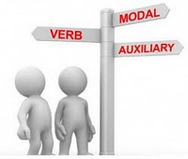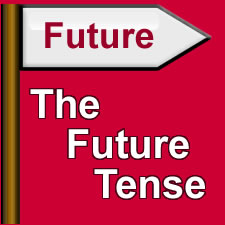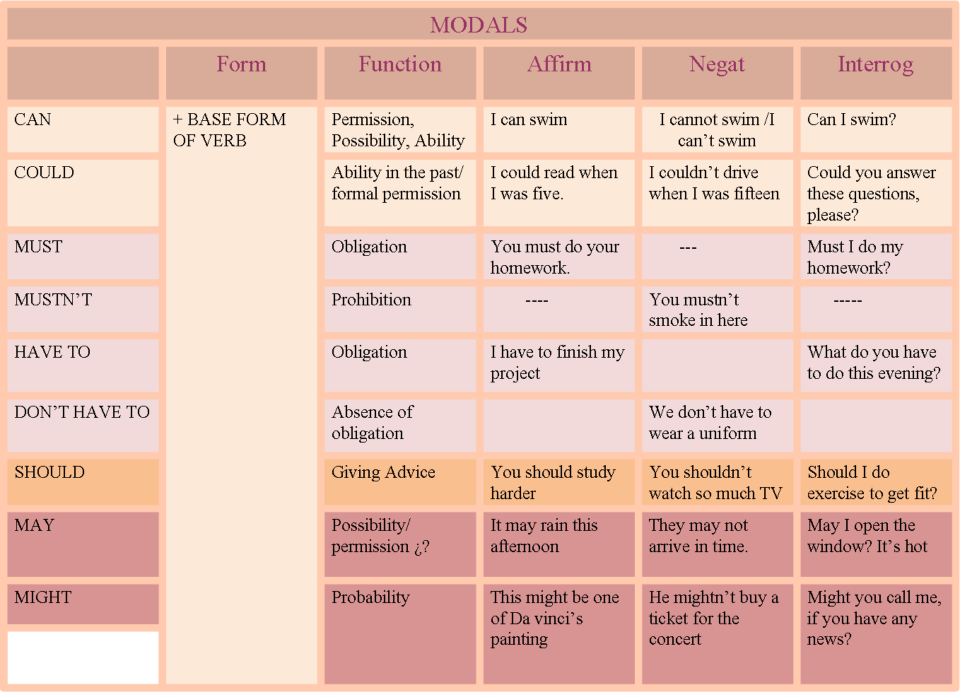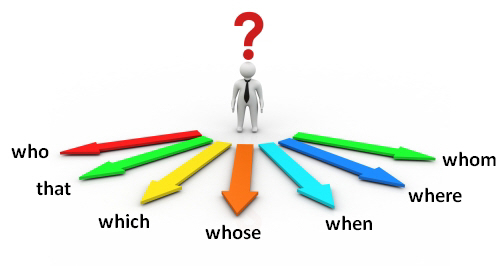MODAL VERBS
PRACTICE

Exercise 1 (don't have to and mustn't)
Exercise 2 (can, could, be able to, may and might)
Exercise 3 (can, must and should)
Exercise 4 (can, must and should)
Exercise 5 (must, have to, mustn't)
Exercise 6 (don't have to, doesn't have to)
Exercise 7 (mixed)
Exercise 8 (mixed)
Exercise 2 (can, could, be able to, may and might)
Exercise 3 (can, must and should)
Exercise 4 (can, must and should)
Exercise 5 (must, have to, mustn't)
Exercise 6 (don't have to, doesn't have to)
Exercise 7 (mixed)
Exercise 8 (mixed)
RELATIVE PRONOUNS
| the_position_of_prepositions_in_relative_clauses.pdf | |
| File Size: | 109 kb |
| File Type: | |
Mixed exercises (NEW - 7.5.)
FUTURE TENSES

There are different ways of expressing future in English.
Will + Infinitive
We use will to talk about plans decided at the moment of speaking (spontaneous decisions).
Be going to + Infinitive
We use going to to talk about plans decided before the moment of speaking.
Present Continuous (am/are/is + ...ing)
We can also use the present continuous to talk about future plans. We usually use it when the plan is an ‘arrangement’ – more than one person is involved and we know the time and place.
Have a look at this nice explanation, too.
Will + Infinitive
We use will to talk about plans decided at the moment of speaking (spontaneous decisions).
- I forgot to phone my mum. I’ll do it after dinner. He decides to phone his mum when she is speaking – she didn’t have a plan.
- I can’t decide what to wear tonight. I know. I’ll wear my black dress.
- There’s no milk in the fridge. I’ll buy some when I go to the shops.
Be going to + Infinitive
We use going to to talk about plans decided before the moment of speaking.
- I’m going to phone my mum after dinner. I told her I’d call at 8 o’clock. He decided to phone his mum before he speaks – he already had a plan.
- I’m going to wear my black dress tonight. I need to pick it up from the cleaners.
- I know there’s no milk. I’m going to get some. It’s on my shopping list.
Present Continuous (am/are/is + ...ing)
We can also use the present continuous to talk about future plans. We usually use it when the plan is an ‘arrangement’ – more than one person is involved and we know the time and place.
- I’m meeting Jane at 8 o’clock on Saturday.
- We’re having a party next Saturday. Would you like to come?
- Are you doing anything interesting this weekend? We often use the present continuous to ask about people’s future plans.
Have a look at this nice explanation, too.



